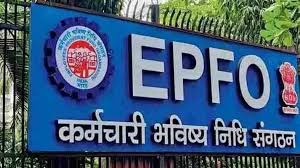 Complaint against banks/non-banking financial institutions about interest rates charged beyond 30% from credit card holders constitutes an unfair trade practice: SC does not agree.
Complaint against banks/non-banking financial institutions about interest rates charged beyond 30% from credit card holders constitutes an unfair trade practice: SC does not agree.
“that determining the reasonability and ‘fixing of the maximum or the minimum rates of interest’, is the exclusive function of the Respondent no.6, the Reserve Bank of India, a statutory authority responsible for the regulation of the Indian Banking system.”
Held by Supreme Court of India on 20th December 2024
Case Law :Hongkong And shanghai Banking Corp. Ltd vs Awaz &others
FACTS
1. Complaint against banks/non-banking financial institutions about interest rates charged beyond 30% from credit card holders constitutes an unfair trade practice: SC does not agree.
“that determining the reasonability and ‘fixing of the maximum or the minimum rates of interest’, is the exclusive function of the Respondent no.6, the Reserve Bank of India, a statutory authority responsible for the regulation of the Indian Banking system.”
Held by Supreme Court of India on 20th December 2024
Case Law :Hongkong And shanghai Banking Corp. Ltd vs Awaz &others
FACTS
1. Question of excessive charging on credit cards :Awaz Trust& others had approached the National Commission at the behest of, One Mr. Thakur a credit card holder with Citibank purportedly claiming an amount of Rs. 90,000/- against excess interest charged by the bank. National Commission ordered in favour of complainant holding that the charging of interest at rates beyond 30% by the banks/non-banking financial institutions, from credit card holders, upon delay or default in payment, constitutes an unfair trade practice.
2. Appeal by Banks/Financial institutes :Set of appeals before the Supreme court arise out of the common Judgment & Order dated 07.07.2008 passed by the National Consumer Disputes Redressal Commission, Delhi in Complaint Case No. 51/2007 and Revision Petition No. 1913/2004.The Appellants, Hong Kong Shanghai Corporation, Citibank, American Express Banking Corporation, Standard Chartered Bank, vide C.A. no. 5273/2008, C.A. No. 5294/2008, C.A. No. 5627/2008 and C.A. 5278/2008 respectively along with the Intervenor, Housing Development Finance Corporation I.A. No. 6/2017 “Banks” have challenged the correctness of the Impugned Order dated 07.07.2008,
3. Courts/Tribunal are barred :The Appellants have argued that courts/tribunal are barred to re-open transactions between banks on the question of rates of interest .This being the statutory function, the Reserve Bank of India is empowers to formulate directions, as befitting the public interest, proper management and banking policies of the country.
4. Determining the reasonability :Determining the reasonability and ‘fixing of the maximum or the minimum rates of interest’, is the exclusive function of the Respondent no.6, the Reserve Bank of India, a statutory authority responsible for the regulation of the Indian Banking system.
5. The Parliament of India empowers RBI :. The Parliament of India, under List I of the Seventh Schedule of the Constitution of India had conferred upon the Reserve Bank of India, the powers of subordinate legislation to formulate directives, circulars, and administrative policies, having statutory force and being binding on all Banks from time to time
6. The Preamble RBI ACT 1934:The Preamble of the Reserve Bank of India Act, 1934 states:
“ It is contended that Section 21A and 35A of the Banking Regulation Act, 1949 are enabling provisions for the Reserve Bank of India to give directions/guidelines to banks/banking companies, in the public interest. Section 21A in specific, creates an embargo upon courts/ tribunals to re-open and adjudicate upon transactions on the ground that the rate of interest is excessive
ON MERITS
Jurisdiction
7. Representative capacity? The consumer complaint under Consumer Protection Act 1986 was filed in a representative capacity by the Respondents ought to have complied with the provisions of Order 1 Rule VIII of the Code of Civil Procedure, 1908 as mandated under Section 13(6) of the Consumer Protection Act, 1986. In terms of Section 13(6) of the Consumer Protection Act, 1986, it was necessary for the Complainants to take necessary permission of the National Commission to sustain a complaint in a representative capacity.
8. Application for permission ?No such application was filed up till the point of conclusion of arguments and reservation of judgment 22.05.2008. the application (undated) filed by the Complainant was done so subsequently, upon the reservation of the Judgement
9. Procedure to file on behalf of all credit cards :Further , Complaint could not have been filed in a representative capacity on behalf of all credit card holders across the spectrum, as only a handful of banks were impleaded as a party to the Complaint. Even no notice of any kind whatsoever was issued to any other bank by the Hon’ble Commission for adequate representation, so as to further treat the complaint in a representative capacity
10. Jurisdiction issue :A Complaint against any purported grievance owing to rate of interests, charged by banks, cannot be the subject matter of a proceeding before the National Commission and an alternate remedy has been provided by the legislature.The administrative policy decisions of banks, do not constitute provisions/facilities of banking, which may come under the umbrella of ‘service’, defined under section 2(1)(o) of the Consumer Protection Act, 1986.
11. Binding force of Agreement clauses. Clauses signed by the parties are binding Upon availing the facility of the credit cards, the customers, are made aware of ‘the most important terms and conditions’, including the rate of interest, that shall be charged by the Banks.
12. Merits of the case regarding allegation :the Reserve Bank of India, has made it clear that even on merits, there exists no material on record, to establish that any bank has acted contrary to the policy directives issued by the RBI. No unfair trade practices by banks It is stated that there are no facts to suggest that any of the scheduled banks under the purview of the Reserve Bank of India, are indulging in unfair trade practices, including charging exorbitant rates of interest.
13. No cap on the rate of interest: There is no question of the RBI being directed to impose any cap on the rate of interest, either on the banking sector as a whole, or in respect of any one particular bank, contrary to the provisions contained in the Banking Regulation Act, and the circulars/directions issued thereunder.
CONCLUSION
In light of the aforesaid, the appeals bearing C.A. No. 5273 of 2008, C.A. No. 5294 of 2008, C.A. No. 5627 of 2008, C.A. 5278 of 2008 and C.A. No. 6679 of 2008 are allowed
Case Law Reference: Pratibha Pratisthan Vs Canara Bank (2017) 3 SCC 712 Administrator Smt. Tata Bai Desai Charitable Opthalmic Trust Hospital, Jodhpur Vs Managing Director, Supreme Elevators India Pvt. Ltd. & Ors SLP(Civil) No. 18636/2019
:Awaz Trust& others had approached the National Commission at the behest of, One Mr. Thakur a credit card holder with Citibank purportedly claiming an amount of Rs. 90,000/- against excess interest charged by the bank. National Commission ordered in favour of complainant holding that the charging of interest at rates beyond 30% by the banks/non-banking financial institutions, from credit card holders, upon delay or default in payment, constitutes an unfair trade practice.
2. Appeal by Banks/Financial institutes :Set of appeals before the Supreme court arise out of the common Judgment & Order dated 07.07.2008 passed by the National Consumer Disputes Redressal Commission, Delhi in Complaint Case No. 51/2007 and Revision Petition No. 1913/2004.The Appellants, Hong Kong Shanghai Corporation, Citibank, American Express Banking Corporation, Standard Chartered Bank, vide C.A. no. 5273/2008, C.A. No. 5294/2008, C.A. No. 5627/2008 and C.A. 5278/2008 respectively along with the Intervenor, Housing Development Finance Corporation I.A. No. 6/2017 “Banks” have challenged the correctness of the Impugned Order dated 07.07.2008,
3. Courts/Tribunal are barred :The Appellants have argued that courts/tribunal are barred to re-open transactions between banks on the question of rates of interest .This being the statutory function, the Reserve Bank of India is empowers to formulate directions, as befitting the public interest, proper management and banking policies of the country.
4. Determining the reasonability :Determining the reasonability and ‘fixing of the maximum or the minimum rates of interest’, is the exclusive function of the Respondent no.6, the Reserve Bank of India, a statutory authority responsible for the regulation of the Indian Banking system.
5. The Parliament of India empowers RBI :. The Parliament of India, under List I of the Seventh Schedule of the Constitution of India had conferred upon the Reserve Bank of India, the powers of subordinate legislation to formulate directives, circulars, and administrative policies, having statutory force and being binding on all Banks from time to time
6. The Preamble RBI ACT 1934:The Preamble of the Reserve Bank of India Act, 1934 states:
“ It is contended that Section 21A and 35A of the Banking Regulation Act, 1949 are enabling provisions for the Reserve Bank of India to give directions/guidelines to banks/banking companies, in the public interest. Section 21A in specific, creates an embargo upon courts/ tribunals to re-open and adjudicate upon transactions on the ground that the rate of interest is excessive
ON MERITS
Jurisdiction
7. Representative capacity? The consumer complaint under Consumer Protection Act 1986 was filed in a representative capacity by the Respondents ought to have complied with the provisions of Order 1 Rule VIII of the Code of Civil Procedure, 1908 as mandated under Section 13(6) of the Consumer Protection Act, 1986. In terms of Section 13(6) of the Consumer Protection Act, 1986, it was necessary for the Complainants to take necessary permission of the National Commission to sustain a complaint in a representative capacity.
8. Application for permission ?No such application was filed up till the point of conclusion of arguments and reservation of judgment 22.05.2008. the application (undated) filed by the Complainant was done so subsequently, upon the reservation of the Judgement
9. Procedure to file on behalf of all credit cards :Further , Complaint could not have been filed in a representative capacity on behalf of all credit card holders across the spectrum, as only a handful of banks were impleaded as a party to the Complaint. Even no notice of any kind whatsoever was issued to any other bank by the Hon’ble Commission for adequate representation, so as to further treat the complaint in a representative capacity
10. Jurisdiction issue :A Complaint against any purported grievance owing to rate of interests, charged by banks, cannot be the subject matter of a proceeding before the National Commission and an alternate remedy has been provided by the legislature.The administrative policy decisions of banks, do not constitute provisions/facilities of banking, which may come under the umbrella of ‘service’, defined under section 2(1)(o) of the Consumer Protection Act, 1986.
11. Binding force of Agreement clauses. Clauses signed by the parties are binding Upon availing the facility of the credit cards, the customers, are made aware of ‘the most important terms and conditions’, including the rate of interest, that shall be charged by the Banks.
12. Merits of the case regarding allegation :the Reserve Bank of India, has made it clear that even on merits, there exists no material on record, to establish that any bank has acted contrary to the policy directives issued by the RBI. No unfair trade practices by banks It is stated that there are no facts to suggest that any of the scheduled banks under the purview of the Reserve Bank of India, are indulging in unfair trade practices, including charging exorbitant rates of interest.
13. No cap on the rate of interest: There is no question of the RBI being directed to impose any cap on the rate of interest, either on the banking sector as a whole, or in respect of any one particular bank, contrary to the provisions contained in the Banking Regulation Act, and the circulars/directions issued thereunder.
CONCLUSION
In light of the aforesaid, the appeals bearing C.A. No. 5273 of 2008, C.A. No. 5294 of 2008, C.A. No. 5627 of 2008, C.A. 5278 of 2008 and C.A. No. 6679 of 2008 are allowed
Case Law Reference: Pratibha Pratisthan Vs Canara Bank (2017) 3 SCC 712 Administrator Smt. Tata Bai Desai Charitable Opthalmic Trust Hospital, Jodhpur Vs Managing Director, Supreme Elevators India Pvt. Ltd. & Ors SLP(Civil) No. 18636/2019



